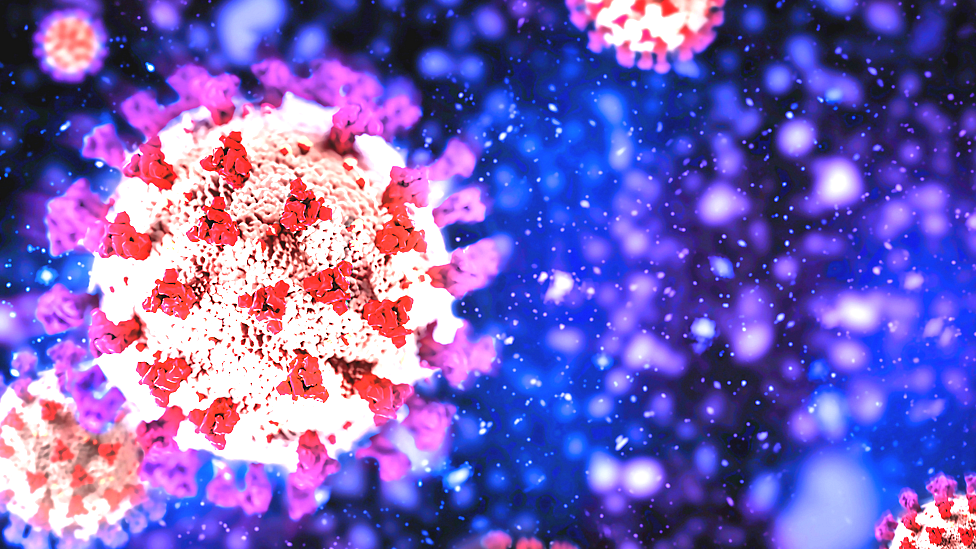Covid-19: Brazil variant surge testing extended
- Published
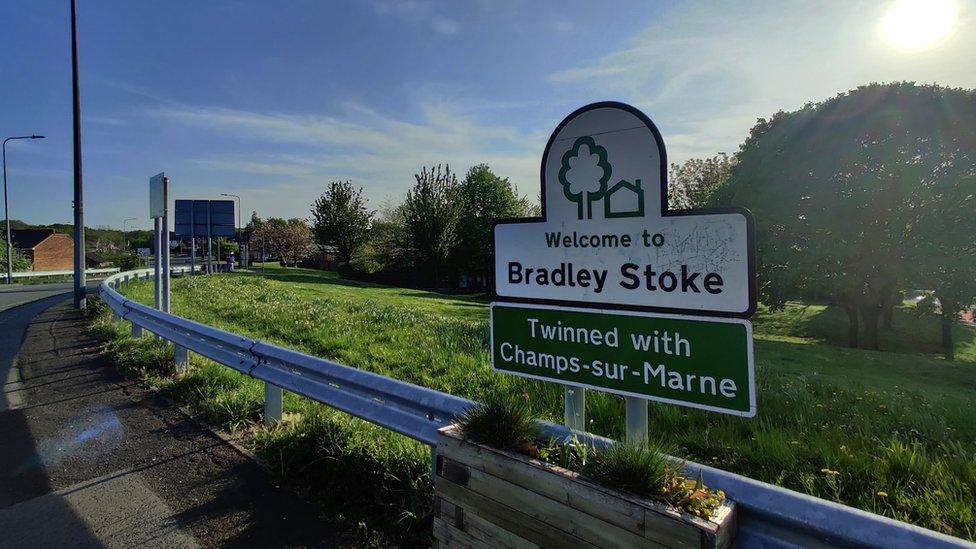
Seven surge testing sites were opened in South Gloucestershire
Surge testing in five postcode areas is to be extended for a further week.
Seven sites where people without symptoms can pick up and drop off Covid-19 tests, external were set up in South Gloucestershire this week.
It follows the discovery of two cases of the Brazilian variant of Covid-19 in one household in the area.
The scheme has been extended until March 14 to maximise the opportunity for those living in, working in or visiting the area to be tested.
South Gloucestershire Council said the uptake of the testing programme had so far been "very good with" 3,806 people attending the mobile testing units in Stoke Gifford and Patchway.
A further 8,828 kits have been collected from the community collect and drop centres in the first three days.
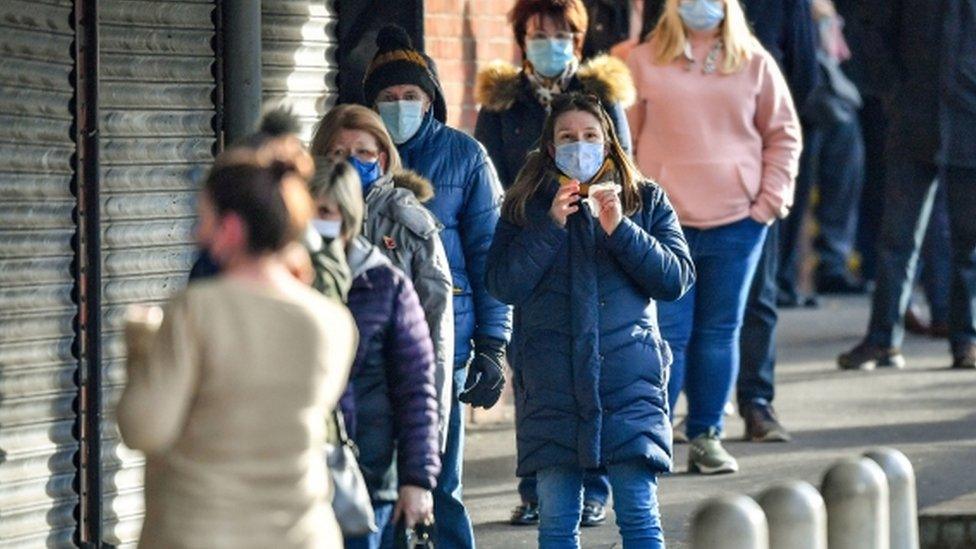
Residents are encouraged to visit a testing centre or pick up a home testing kit.
From the two initial diagnosed cases of the Brazil variant, what's been described as 'a small contained group of contacts around the confirmed cases' has been identified through contact tracing.
Sara Blackmore, Director of Public Health at South Gloucestershire Council, said she hoped that extending the programme would encourage anyone eligible to take the test.
The postcodes included in the current testing are BS32 0, BS32 8, BS32 9, BS34 5 and BS34 6.
People who travel to the area for work or to visit someone for a support bubble are also eligible.
Two community surge testing sites are open primarily for vehicles:
Parkway North Park & Ride, Hunts Ground Road, Stoke Gifford, BS34 8PU
The Mall Coach Park, The Mall Cribbs Causeway, Highwood Rd, Patchway BS34 5SP
Along with five community-based collection and drop-off locations for walk-ins:
Little Stoke Community Centre, Little Stoke Lane, BS34 6HR
Patchway Community Centre, Rodway Road, Patchway BS34 5PF
Baileys Court Activity Centre, Baileys Court Road, Bradley Stoke BS32 8BH
Bradley Stoke Jubilee Centre, Savages Wood Road BS32 8HL
Coniston Community Centre, The Parade, Patchway BS34 5LP
All positive tests identified in these areas are being sent for further genomic sequencing to identify the specific variant of the virus.
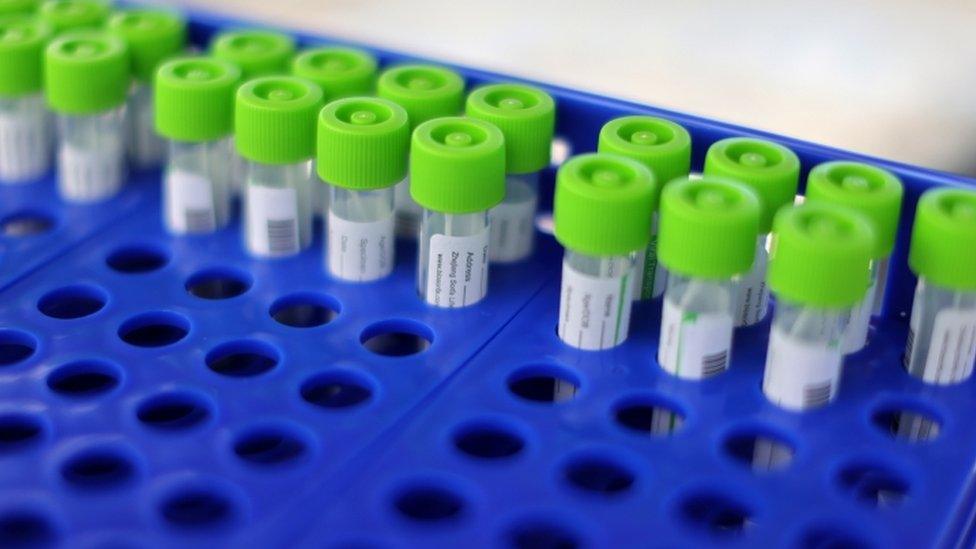
Residents living in five postcode areas are being asked to get a test even if they do not have coronavirus symptoms
- Published1 March 2021
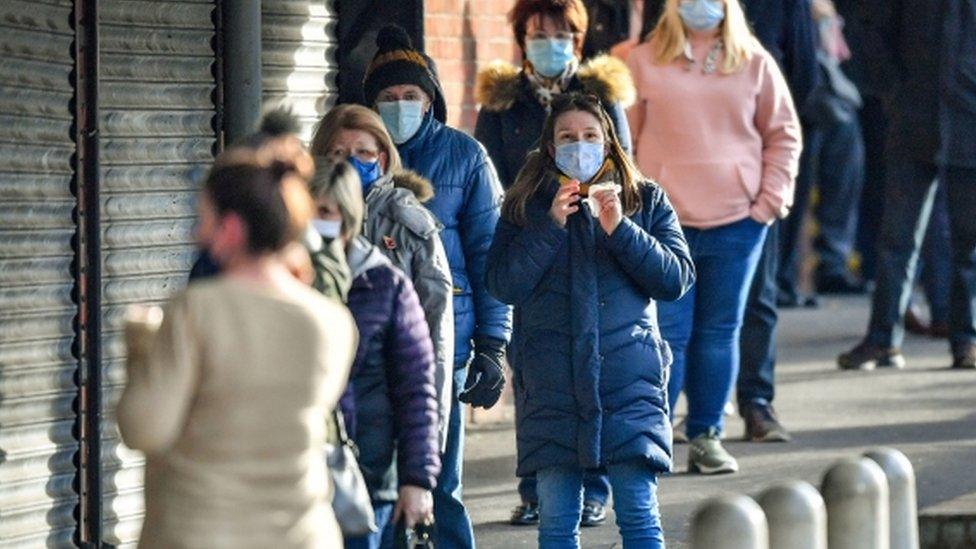
- Published1 March 2021
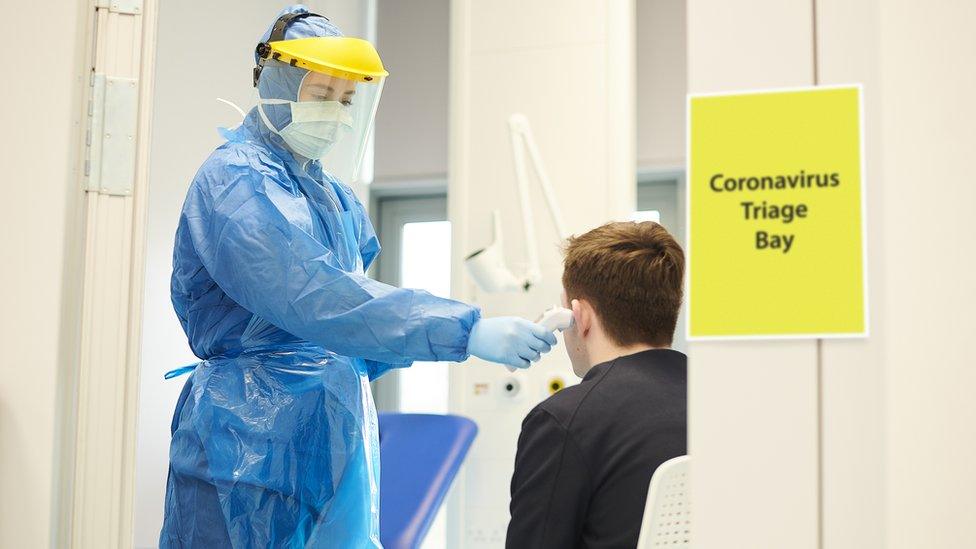
- Published1 July 2022
